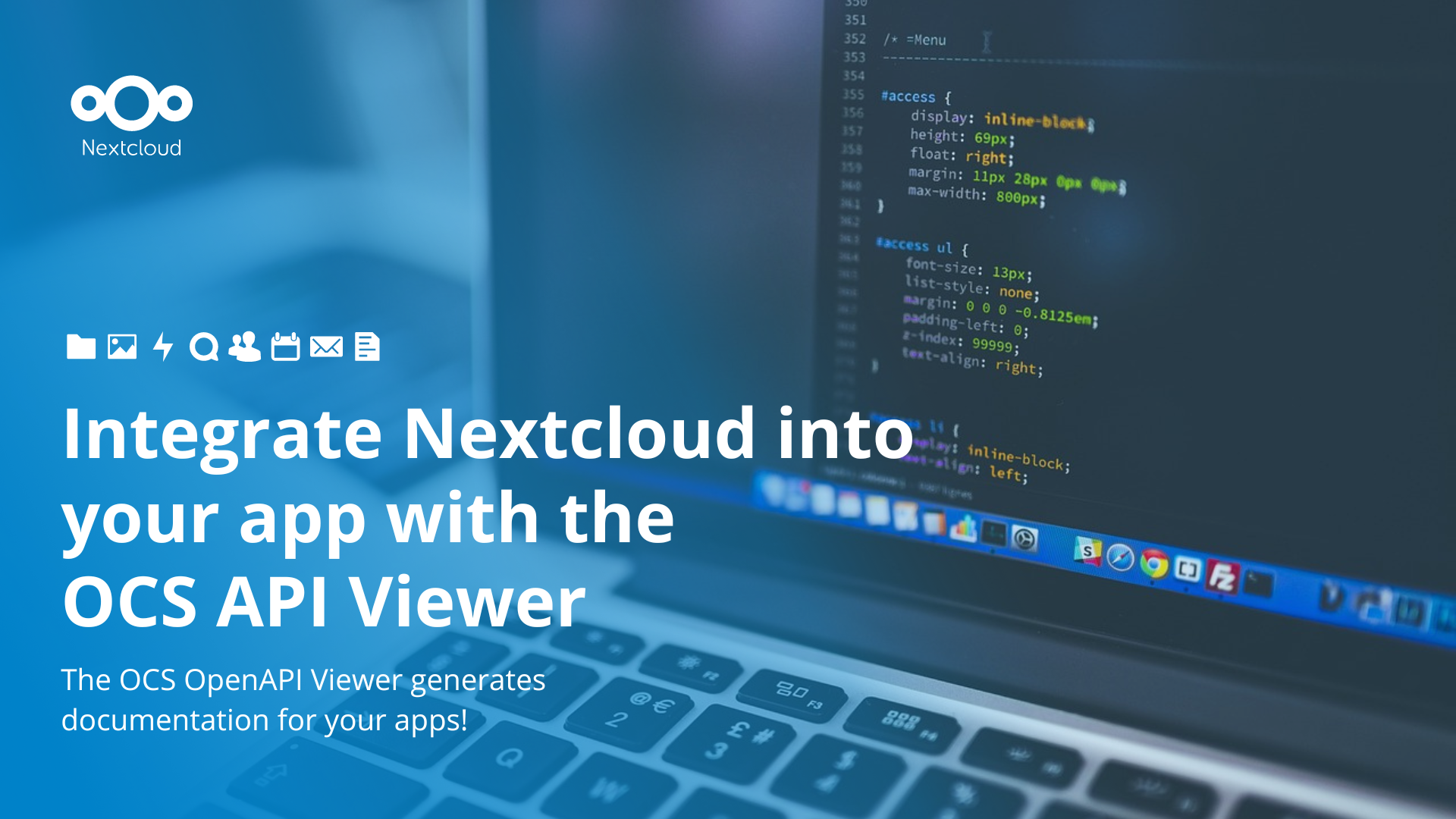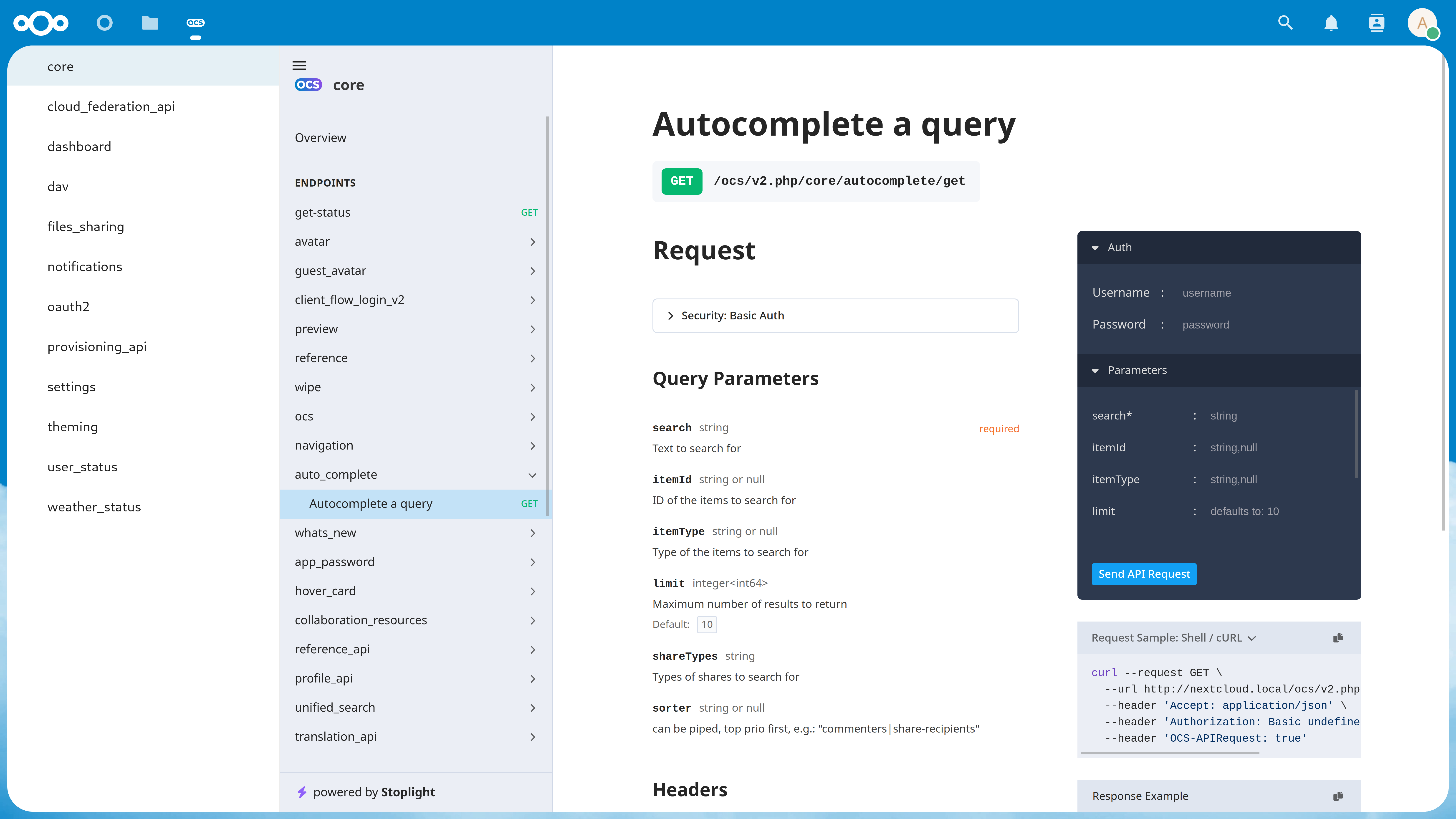Descubre el primer asistente de IA de open source que respeta tu privacidad
El primer asistente de IA ético y de open source capaz de realizar multitud de tareas por ti sin poner en riesgo tus datos.
Ver másAt our Hub 4 release, we announced that Nextcloud was working to support OpenAPI! This would result in the ability to automatically generate standardized, high quality API documentation as well as several other cool things. One of those cool things is the OCS API Viewer. The viewer makes it easy to view and interact with API’s for testing.

Do you have an app used in your organization that you want to integrate into Nextcloud? Are you developing a mobile app that needs to store documents? A desktop application that would need to share files between users?
We’ve got a solution for you!
The Open Collaboration Services (OCS) API is designed to make it easy to connect your apps to any Content Collaboration Platform like Nextcloud. Whether you want to just store or share files, notes or documents, it’s now really simple.
Let’s say your company is developing an internal application that creates invoices for your customers. You want to store the invoices in Nextcloud Files and even have an instant chat room created when a new invoice is added. To learn how to do it, all you have to do is use the OCS API. And using the OCS API Viewer, you can easily browse through the options and try them out.
The OCS API Viewer is a Nextcloud app where you can interactively discover APIs (Application Programming Interface’s) and try them out on your own instance from the browser.
For example, if you wanted to update a (file) share, you can go to file_sharing –> shareapi –> update a share and add the file ID. Hit “Send API request” and you can see the response from the server, and how the share was created. On top of that, it shows you code snippets for many different programming languages for executing this request.
The OCS API Viewer thus makes it easier and faster for a developer of an application to build integration with Nextcloud.

The app can be installed on any Nextcloud instance and allows you to run everything on your own server.
Don’t know how to get started?
Check out our tutorial!
As an app developer, you can now generate documentation for your app yourself and for others with a few changes to your app.
Say you’re developing the code for a new Nextcloud app, like a trip planning app, and you want to allow a third party software developer to write an app for Android that can create, view and modify a trip. You would use the openapi-extractor in the OCS API Viewer to create that documentation that the third party developers can use.
We’ve got four different programming languages for which we provide convenience code for OCS based communication to a Nextcloud server: Typescript, Python, Rust and Go. For each language, we’ve set up Developer Toolkits to ease the development of integrations with apps using these languages.
If you just want to check out how to use the new documentation as a non-Nextcloud user, check it out here: docs.nextcloud.com.
Kate Döen, Software Engineering working student at Nextcloud, will be giving a lightning talk and workshop about automated API documentation for Nextcloud using OpenAPI. Register for the conference to hear Kate talk!
Register now